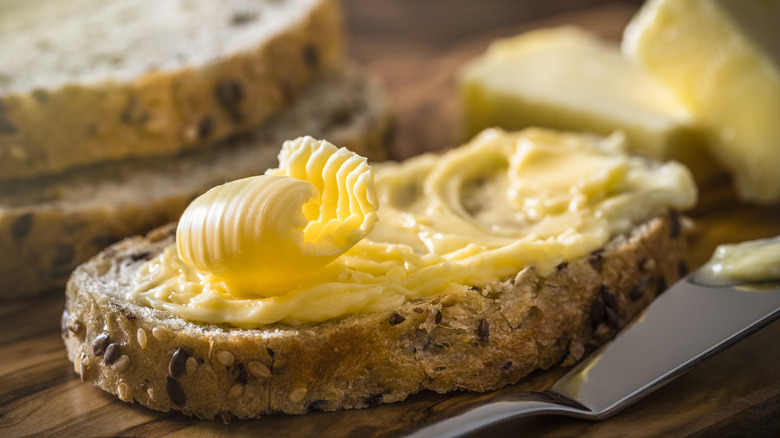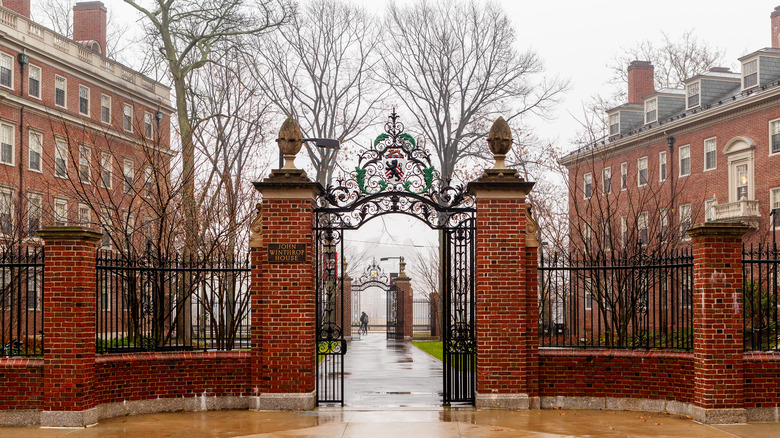Butter May Have Inspired An 18th Century Harvard Rebellion
We know butter as a rich, creamy ingredient that makes practically everything taste better. But believe it or not, there was a time when the spread did the opposite of smooth things over. In fact, back in 1766, it may have inspired a historic rebellion. At the Harvard University dining halls in the 18th century, the food quality was anything but satisfactory, according to the students of the era. And the prime example of how the food wasn't up to par was the putrid butter. The spread was so disgusting that students began openly expressing their disdain.
Among the protestors was Asa Dunbar, perhaps best known as Henry David Thoreau's grandfather. Back in his day, he stood on top of a chair to shout what would later become the slogan of the rebellion, "Behold, our butter stinketh! Give us, therefore, butter that stinketh not," according to The Crimson. Despite his conviction, Harvard's president at the time wasn't too pleased with the students' actions — especially when a food fight broke out. Dunbar's peers ditched class to profess their demands for better on-campus meal options. Eventually, the president became fed up and suspended half of the school, hoping they would cave and reveal the identity of the rebellion's instigator.
A shrinking American economy led to low-quality butter at Harvard
However, half of Harvard's student body didn't end up permanently leaving school in 1766. After it was clear that the students weren't going to turn in the protest's leaders, the Board of Overseers ended the rebellion by terminating the suspension and upgrading the butter. This happened partly because of Dunbar and his classmates' dedication to their cause. As they proclaimed at the time, "That the butter was bad and unwholesome no one can deny; had it been the first time, or had it happened rarely, we should have been content. This, however, was not the case" reports Academic.
Although stinky butter sounds disgusting, Harvard wasn't necessarily serving it out of a lack of attention to their food. Back in 1766, the American economy was suffering before the Revolution – in fact, between 1774 and 1789, it shrank by about 30%, according to Mount Vernon. As a result, high-quality food was harder to come by. And although the Great Butter Rebellion was the school's first-recorded student protest, it wasn't the last. In 1768, the dining hall's food conditions went downhill again. In 1807, students protested against maggots in their cabbage soup — proving that sour butter was only the beginning of the college's challenges with food.

